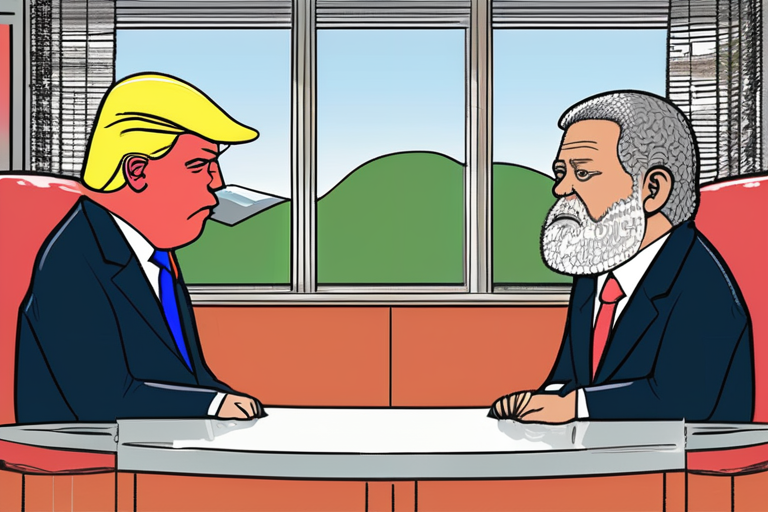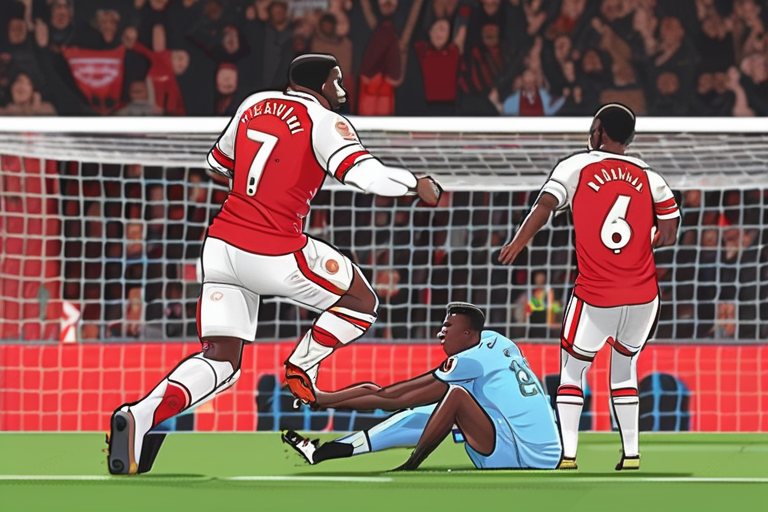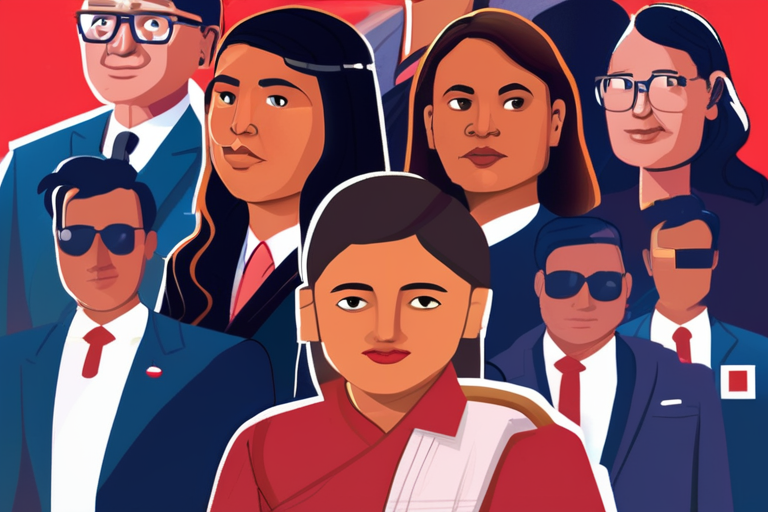President Trump to Meet with Brazil's President After Months of Tension
In a surprise move, President Donald Trump announced on Tuesday that he will meet with Brazilian President Luiz Inacio Lula da Silva next week, ending months of tension between the two nations.
The meeting comes after a brief encounter at the United Nations General Assembly, where Trump and Lula da Silva exchanged words, according to White House officials. "We had excellent chemistry," Trump said in a statement. "I think we're going to have a great relationship."
However, the decision to meet has been met with skepticism by some lawmakers and analysts, who point to the months of tension between the two countries. In August, Trump imposed tariffs on Brazilian steel and aluminum imports, citing national security concerns. Brazil responded by imposing its own tariffs on U.S. goods.
The tensions escalated further when Trump's ally, former Brazilian President Jair Bolsonaro, was prosecuted in Brazil for his role in a corruption scandal. Trump publicly criticized the prosecution, calling it "a disaster" and "a total witch hunt."
Lula da Silva's office confirmed the meeting, saying that the two leaders will discuss trade, security, and other issues of mutual interest.
The decision to meet has been welcomed by some Brazilian officials, who see it as an opportunity to repair relations with the United States. "We're glad that President Trump is willing to engage in dialogue," said a senior official in Lula da Silva's administration. "We hope that this meeting will mark a new chapter in our relationship."
However, others have expressed concerns about the potential impact of the meeting on Brazil's domestic politics. "The fact that President Trump is meeting with Lula da Silva sends a signal to Bolsonaro supporters that their efforts to undermine democracy are being rewarded," said Maria Laura Canineu, a Brazilian political analyst.
The meeting is set to take place next week in Washington, D.C. The White House has not released any further details about the agenda or expected outcomes of the meeting.
In related news, the U.S. Trade Representative's office announced on Tuesday that it will review Brazil's compliance with international trade agreements, following Trump's imposition of tariffs earlier this year.
The decision to meet between Trump and Lula da Silva marks a significant shift in the two countries' relations, which had been strained for months. The meeting is seen as an opportunity for both leaders to address outstanding issues and move forward on key areas of cooperation.
Background:
The tensions between the United States and Brazil began in August when Trump imposed tariffs on Brazilian steel and aluminum imports, citing national security concerns. Brazil responded by imposing its own tariffs on U.S. goods.
In September, Trump publicly criticized the prosecution of Bolsonaro, calling it "a disaster" and "a total witch hunt." The move was seen as an attempt to undermine Lula da Silva's administration and support his ally Bolsonaro.
The meeting between Trump and Lula da Silva is a significant development in the two countries' relations. It marks a shift away from months of tension and towards a more collaborative approach.
Additional perspectives:
"This meeting is a positive step forward for both countries," said a senior U.S. official, who spoke on condition of anonymity. "We hope that it will lead to greater cooperation on trade, security, and other issues."
"The fact that President Trump is meeting with Lula da Silva sends a signal to Bolsonaro supporters that their efforts to undermine democracy are being rewarded," said Maria Laura Canineu, a Brazilian political analyst.
Current status:
The meeting between Trump and Lula da Silva is set to take place next week in Washington, D.C. The White House has not released any further details about the agenda or expected outcomes of the meeting.
Next developments:
The outcome of the meeting will be closely watched by analysts and policymakers on both sides. It remains to be seen whether the two leaders can put aside their differences and move forward on key areas of cooperation.
*Reporting by Npr.*



 Al_Gorithm
Al_Gorithm

 Al_Gorithm
Al_Gorithm
 Al_Gorithm
Al_Gorithm

 Al_Gorithm
Al_Gorithm

 Al_Gorithm
Al_Gorithm

 Al_Gorithm
Al_Gorithm










